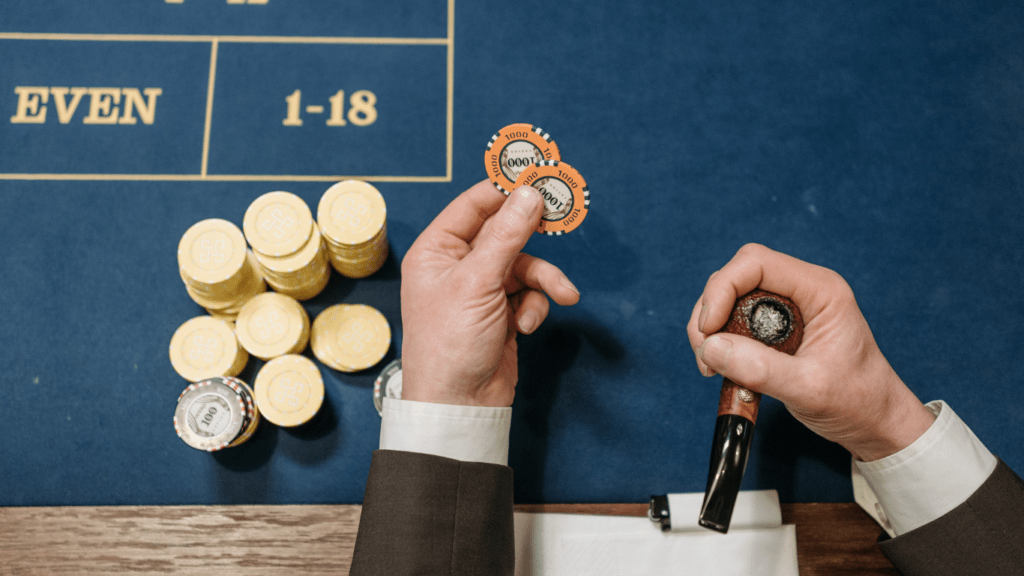Understanding Greed in Gaming
Greed in gaming, much like in gambling, can drastically impact decision-making processes. It’s the excessive desire to acquire or achieve more than needed, often resulting in impulsive actions. In competitive environments, players may prioritize short-term gains over long-term strategy, leading to potential pitfalls. For example, chasing high-risk rewards without considering the consequences can lead to losses.
Developers sometimes design games to exploit these tendencies, with features that encourage spending or taking risks. Loot boxes and in-game purchases are perfect examples, often tempting players to make spontaneous decisions. Being aware of such tactics helps maintain focus and prevents regretful actions.
Managing greed requires recognizing its presence. By pausing and assessing motivations before making moves, players can make calculated choices. Strategies like setting limits on time or currency spent within games can mitigate the impulse to act on greed. Staying informed about the gaming environment and understanding personal triggers is crucial for maintaining control and ensuring a clear mind during play.
The Psychological Effects of Greed
Greed profoundly affects mental states, skewing perception and judgment. Identifying these effects is crucial for fostering sound decision-making.
Short-term Gains vs Long-term Losses
Greed thrives on short-term rewards, often at the expense of long-term benefits. Impulsive actions driven by greed result in immediate satisfaction but usually cause setbacks in sustainable growth. If I continuously prioritize instant gratification over stable, measured strategies, my chances of achieving substantial, lasting success diminish. Understanding this dichotomy helps me pause and evaluate my long-term goals, avoiding temporary temptations.
Emotional Rollercoaster and Decision Making
Greed leads to emotional volatility, impacting rational thinking. Elevated excitement during potential gains quickly turns to anxiety when faced with losses. This emotional swing clouds my judgment, making me prone to impulsive reactions. By acknowledging these emotional effects, I can strive for balance, maintaining clarity and avoiding hasty decisions driven by greed-induced emotions.
Recognizing Greed During Gameplay

Greed often clouds judgment in gaming, pushing players toward hasty choices. Identifying greed helps maintain a focused and strategic mindset.
Common Signs of Greed
- Greed manifests through several behaviors in gameplay.
- Excessive risk-taking, such as betting high stakes without evaluating odds, signals greed.
- Chasing losses to recover quickly also indicates clouded decision-making.
- Prioritizing immediate rewards over long-term benefits, like choosing flashy upgrades instead of strategic assets, reveals short-term focused greed.
- Ignoring pre-set budgets or time limits reflects an inability to control desires.
Self-assessment Techniques
- Recognizing greed, a self-assessment helps maintain clarity.
- Players can track emotions during gameplay to spot patterns linked to greed, such as heightened excitement or frustration.
- Evaluating decisions post-game offers insight into whether choices were impulsive or strategic.
- Setting checkpoints or reminders encourages reflection during play, allowing for a pause to reassess motivations and decisions.
- Maintaining a gaming journal helps track behavior trends and acknowledges progress in managing greed.
Strategies to Play with a Clear Mind
Clear-minded play enhances decision-making by mitigating the effects of greed. Leveraging focused strategies can elevate performance and lead to more fulfilling outcomes.
Setting Realistic Goals
I find it crucial to establish clear and achievable targets before engaging in any game or investment. Realistic goals help align efforts with my capabilities and resources. By setting boundaries such as time limits or financial caps, I prevent overextension and maintain focus on meaningful achievements. When defining these objectives, I consider factors like skill level and available resources to ensure they match my expectations. I periodically review and adjust these goals to stay grounded and adaptable.
Practicing Patience and Discipline
To mitigate impulsive behavior, I cultivate patience and self-control in my decision-making. When a situation tempts me to act hastily, I remind myself of the benefits of deliberate actions over impulsive ones. I establish routines, like taking breaks to reassess my strategies, which preserve my mental clarity. Techniques such as:
- deep breathing
- mindfulness
help me stay centered and reduce emotional volatility. Consistent practice of these habits ensures I maintain a stable mindset, even in high-pressure situations.

 Christopher Walkerashed, the founder of Wild Gamble Greed, is a trailblazer in the high-stakes gambling industry. With a passion for the excitement of big bets, he created a platform that caters to seasoned players, offering expert insights into high-stakes sports betting, poker, and slot machines with massive payouts. Walkerashed is equally committed to promoting responsible gambling, ensuring players have the tools to balance ambition with control. Through his innovative vision, Wild Gamble Greed has become a premier destination for high-rollers seeking to gamble smartly and responsibly.
Christopher Walkerashed, the founder of Wild Gamble Greed, is a trailblazer in the high-stakes gambling industry. With a passion for the excitement of big bets, he created a platform that caters to seasoned players, offering expert insights into high-stakes sports betting, poker, and slot machines with massive payouts. Walkerashed is equally committed to promoting responsible gambling, ensuring players have the tools to balance ambition with control. Through his innovative vision, Wild Gamble Greed has become a premier destination for high-rollers seeking to gamble smartly and responsibly.